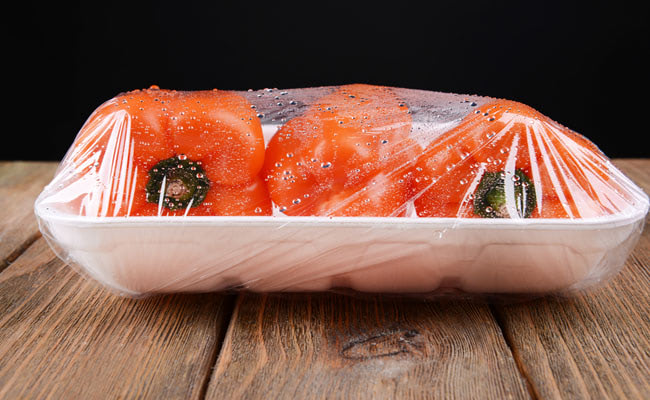Storing leftover food with plastic wrap is a fair way of keeping your food fresh for a longer time. However, this material is quite limited because what it does is just sealing everything off from oxygen. Researchers at the National University of Singapore have successfully developed a natural chitosan-based and environmentally-friendly film with grapefruit seed extract able to improve food safety, conservation and quality.
Free from chemical additives, chitosan can slow down fungal growth, doubling the shelf-life of perishable food, such as bread. This material, a natural polymer derived from the shells of shrimp and other crustaceans, has immense potential: it is non-toxic, biocompatible, and biodegrades in short time. Additionally, it is inherently antimicrobial and antifungal. Grapefruit seeds extract is antioxidant and has strong antiseptic, germicidal, anti-bacterial, fungicidal and anti-viral properties.
The film is as strong and flexible as the synthetic polyethylene film commonly used for food packaging. Also, it effectively blocks ultraviolet light, consequently slowing down the degradation of products. Findings of their study showed that the shelf-life of bread samples packaged with the film was twice as long as those wrapped in a synthetic packaging film.
“Increasing attention has been placed on the development of food packaging material with antimicrobial and antifungal properties, in order to improve food safety, extend shelf-life and to minimize the use of chemical preservatives” said co-author, Associate Professor Thian Eng San from the Department of Mechanical Engineering at NUS. “Consumers are also demanding that packaging materials be formulated from natural materials that are environmentally friendly and biodegradable, while improving food preservation. This novel food packaging material that we have developed has the potential to be a useful material in food technology".
The next step for researchers will be to explore the biodegradability of chitosan-based grapefruit seed extract film, as well as implement an accelerated shelf-life examination to investigate the extent of microbial growth and quality changes during storage of various food products.
"Extending the shelf-life of food products also means reducing food waste, and as a result, reducing the rate of global food loss" said Tan Yi Min, a member of the research team. "This will bring about both environmental and economic benefits".
Source: NUS Image: Shutterstock

Share your thoughts and join the technology debate!
Be the first to comment